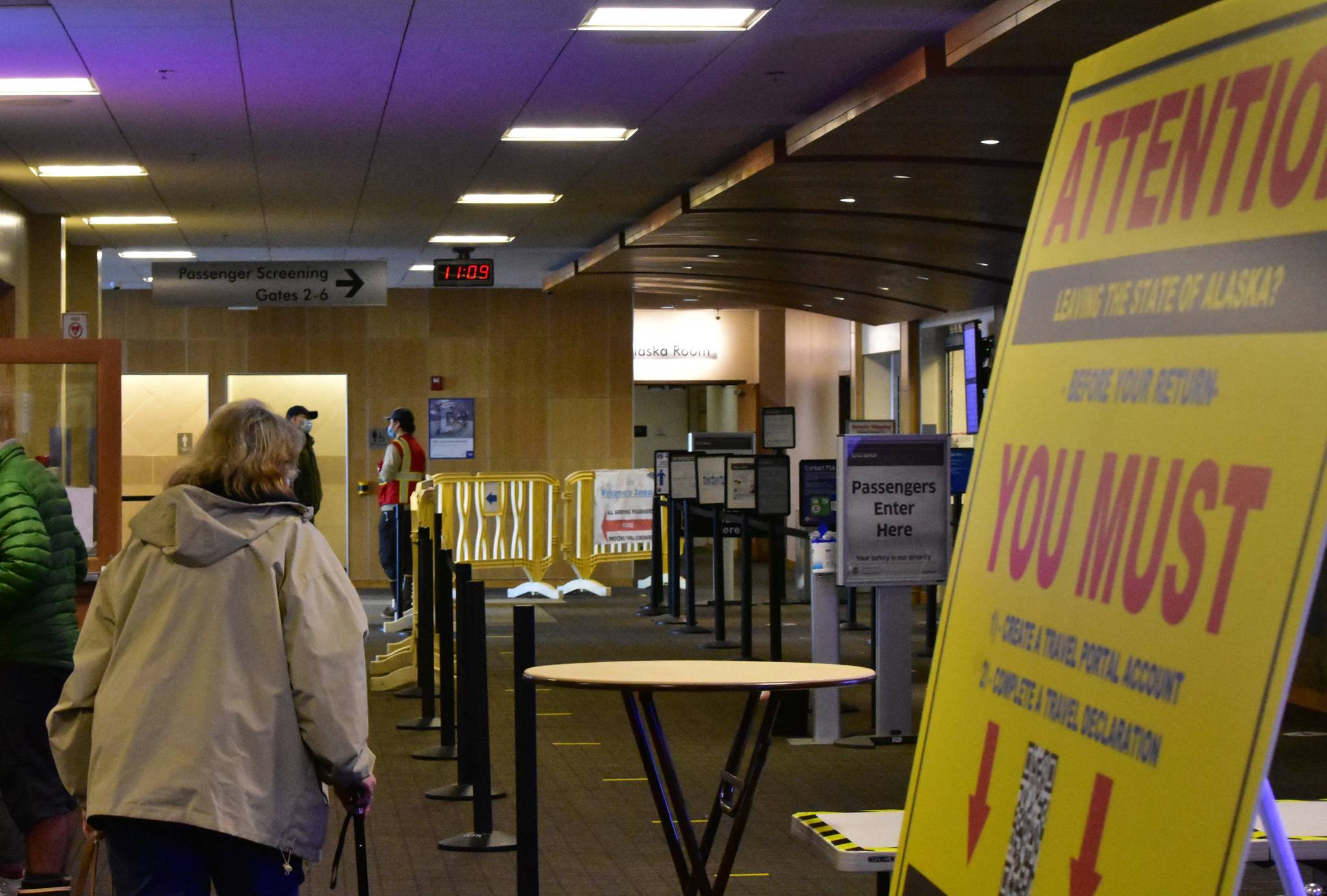Gov. Mike Dunleavy’s new disaster declaration took effect Monday extending most of the emergency provisions outlined in the previous one passed in the spring. The declaration allows certain laws to be suspended giving health care officials more flexibility to respond to the COVID-19 pandemic.
The governor’s mandate lasts for 30 days and issued eight health orders providing guidance for businesses and travel during the pandemic. The orders are mostly an extension of mandates under the previous declaration such as travel restrictions and requirements for businesses to submit health mitigation strategies.
The declaration also allows for local municipalities are allowed to enact their own travel restrictions and provided a number of recommendations for people traveling between the communities on and off the road system or the Alaska Marine Highway System.
The orders are not legally different from the mandates passed in the previous emergency declaration, said acting Attorney General Ed Sniffen, but officials wanted to change the name as to not confuse new regulations with old ones. Certain provisions within the mandates had been refined for the new declaration said Bryan Fisher, incident commander for the State Emergency Operation Center, based on experiences with implementation in the past months.
After the 30-day declaration is up, it’s not yet clear what action the governor will take, Sniffen said.
“It’s unclear what we might advise the governor to do,” he said of the declaration ending on Dec. 15. “We’ll see what happens in the next couple of weeks.”
[Gov issues 2nd emergency declaration, but lawmakers cry foul]
When the governor issued his initial declaration in March, the Alaska State Legislature was still in session and able to extend the order, but lawmakers have questioned whether the governor’s new declaration will stand up to legal challenge.
State officials are trying to protect Alaska’s health care infrastructure and make sure hospitals and other facilities didn’t become overloaded with a surge of coronavirus cases, said Department of Health and Social Services Commissioner Adam Crum. Last week, the state stepped up its messaging about health mitigation strategies like social distancing and masking, Crum said, which included a message directly from the governor to Alaskan’s phones using the state’s emergency alert system.
“The message got through, the people are really starting to understand,” Crum said. “The message seems to have been received.”
State officials had heard from a number of regional health authorities, Crum said, who said they had already seen a measurable difference in public behavior around health mitigation strategies.
In his message, Dunleavy asked Alaskans to step up their diligence with regard to the virus for the next three weeks to keep the state’s numbers in check. If the spread of the virus isn’t reduced the state would be limited in its options of how to proceed, Dunleavy said in the video.
“There are other things on the table,” Crum said of additional measures. “But a lot of these things seem to be working.”
It will take several weeks before there’s any measurable downturn, Crum said, and the state is trying to take a holistic look at people’s health, including the economic and emotional toll a lockdown might bring.
Over the weekend the state set a new record for a single-day increase of COVID-19 cases, with 745 new cases announced on Saturday. Sunday saw 654 new cases and 563 were announced on Monday. In Juneau, the city announced 27 new cases over the weekend, but said that clusters among the city’s unsheltered population and among employees at the Mendenhall Auto Center had both finished.
• Contact reporter Peter Segall at psegall@juneauempire.com. Follow him on Twitter at @SegallJnuEmpire.

